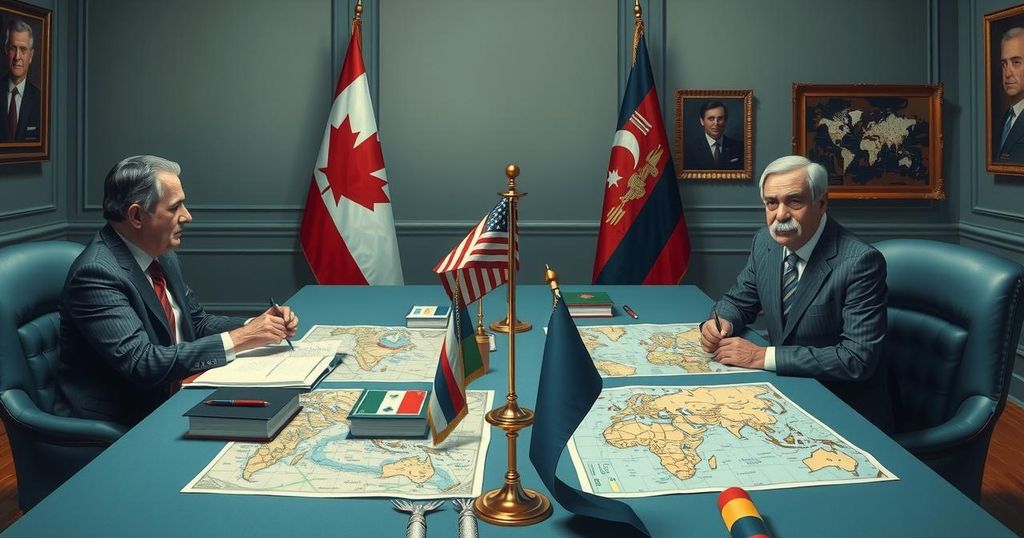El Salvador’s President Proposes Humanitarian Exchange with Venezuela
Salvadoran President Nayib Bukele proposed a prisoner exchange with Venezuela, seeking the return of 252 Venezuelans deported by the U.S. in exchange for political prisoners held by President Nicolás Maduro. Bukele stated that his detainees have committed serious crimes, while the political prisoners are imprisoned for opposing the Venezuelan government. This proposal highlights the complexities of international diplomacy amidst U.S. policy challenges.
In a bold diplomatic move, Salvadoran President Nayib Bukele has proposed a prisoner exchange with Venezuela. This exchange would involve 252 Venezuelans deported to El Salvador by the United States in return for an equal number of political prisoners held by President Nicolás Maduro’s government. Bukele articulated his call for a “humanitarian agreement” on X, emphasizing the complete repatriation of the Venezuelans.
President Bukele, who met with officials at the White House last week, stated that the Venezuelans currently detained in El Salvador were apprehended during a U.S. operation targeting gangs, notably Tren de Aragua. Over the past month, 288 individuals have been deported to El Salvador, as part of the Trump administration’s controversial policies towards gang members, which are now classified as terrorists.
The U.S. government is compensating El Salvador to incarcerate these individuals in the high-security CECOT prison. However, this arrangement has faced judicial challenges within the U.S. Recently, the Supreme Court suspended deportations under the 18th-century Alien Enemies Act, raising questions about constitutional adherence in the administration’s policies, which some view as a power grab by President Trump.
In his remarks, Bukele pointed out a significant distinction: while the Venezuelans in his custody committed serious crimes, such as murder and rape, the political prisoners he seeks to free are detained solely for opposing the Venezuelan government. He specifically mentioned prominent political prisoners, including Rafael Tudares, journalist Roland Carreno, and activist lawyer Rocio San Miguel, among others sheltering in the Venezuela embassy in Argentina, as well as 50 foreign nationals imprisoned under similar circumstances.
President Nayib Bukele’s proposal for a prisoner exchange with Venezuela underscores his approach to regional diplomacy while highlighting the stark contrast between the accusations against the detainees in El Salvador and the political prisoners in Venezuela. This case raises significant ethical considerations about the treatment of individuals involved in both criminal and political contexts. The ongoing tensions between U.S. domestic policy and international human rights issues play a critical role in the unfolding dialogue between El Salvador and Venezuela regarding these matters.
Original Source: www.rfi.fr




Post Comment